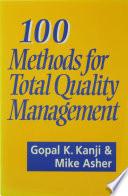An Introduction
The major textbook in communication theory. Denis McQuail provides a brisk, elegantly organized, and comprehensive overview of the ways in which mass communication has been viewed by social scientists and by practitioners. The wealth of thinking in the field; the enormous range of issues studied and questions raised; the proliferation of schools, approaches and tendencies: McQuail marshalls this welter of material into a clear, easy to follow textbook for students at all levels of communication studies. He reviews: ways in which the the mass media have been defined theories of their function and purpose views of the organizational structures and processes of mass media content analysis and the other techniques for interpreting the meaning of media content theories of what an audience is and what it does Cultivation theory, traditional sociology, classical marxism, the Frankfurt school, 'hegemony' theory, Soviet media theory, the uses and gratifications approach, development media theory, free press theory, organizational theory -- all these and much more -- are described and placed in their historical and scholarly context. McQuail's extensive references will guide anyone interested in mass communication to the key work in the field. Diagrams, a Media Theory Map, summaries, indexes and other features will further help new students to keep a hold on all the separate strands in the field. About the author: Denis McQuail is currently Professor of Mass Communication, University of Amsterdam, the Netherlands. After graduating from Corpus Christi College, Oxford with a BA in Modern History and a Diploma in Public and Social Administration, he received a PhD in social studies from the University of Leeds. He has since been affiliated to the Television Research Unit, University of Leeds; the University of Southampton; and the Annenberg School of Communication, University of Pennsylvania. His major publications include: Television and the Political Image (with J Trenaman) 1961; Television in Politics: Its Use and Influence (with J G Blumler), 1968; Towards a Sociology of Mass Communications, 1968; Sociology of Mass Communication (editor) 1972; Communication, 1975; Review of Sociological Writing on the Press, 1976; Analysis of Newspaper Content, 1977; Communication Models for the Study of Mass Communication (with Sven Windahl), 1982. Why this textbook? Why choose this textbook for use in your courses over others that are available? McQuail has drawn on his own extensive teaching experience to make sure his book offers the following qualities and features: The frameworks: for ease of organization, McQuail arranges the theories of media effect processes, or mass media and social change in new, clarifying frameworks. He aims to present all the principal theories within a single integrative framework. Its range: McQuail's extraordinary feat of organization encompasses theories from all the principal approaches to communication from all over the world. His book will be useful in a variety of cultural and national settings. Its thoroughness: McQuail provides over 300 references to guide your students to the primary sources. Not only is each theory described, and its sources and histories plotted, but its implications and intellectual context are explored. Consensus theories are given equal weight with themore contentious, critical understandings. Controversy is faced, fairness maintained. Its currency: The most recent research is expressed in the form of theoretical propositions. New approaches are discussed that are not reviewed in other textbooks: a revision of the functional theory, the notion of emerging 'public definitions', and a revision of the 'four theories of the press'. Other unique features: A thorough review of theories of the audience. Questions of media power and normative theories of media are given a central place at various points. Professor Denis McQuail provides a thorough review of the history, structure, and processes of the mass media, and the views taken of them. The first chapter defines the terms and issues of mass media studies. It also traces the development of mass media since the first newspapers in the 17th century. McQuail notes the origins, typical forms, and applications of mass media at different times. He then provides a framework for understanding the different approaches to the study of mass media. Mass society theory, Marxist approaches of different types, message-centred theory, and theory of audience and effect are the perspectives reviewed. Chapter Three explores the ideological, political, and cultural contexts in which the mass media operates, and which define the media's functions. The institutional forms of mass communication are characterized in Chapter Four. In Chapter Five, the meaning of the information provided by the media is analyzed. Different kinds of content, such as news or fiction, are examined from different theoretical perspectives. Chapter Six describes alternative approaches to the study ofthe audience, the different aspects of audiences which they study, and the conclusions they have reached. Chapter Seven focusses on the study of the impact and effect of media. Different scientific approaches to this study are described, and the results of this research given. The final chapter looks at the lessons of mass communication study for issues of current concern such as international communication and new technological developments.
McQuail's extensive references will guide anyone interested in mass communication to the key work in the field.










